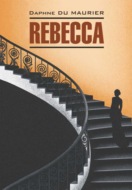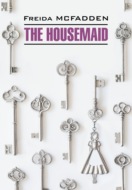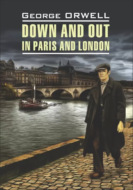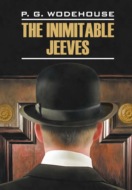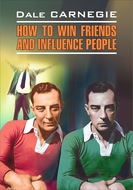Kitabı oku: «Фунты лиха в Париже и Лондоне / Down and Out in Paris and London. Книга для чтения на английском языке», sayfa 2
IV
One day my English lessons ceased abruptly. The weather was getting hot and one of my pupils, feeling too lazy to go on with his lessons, dismissed me. The other disappeared from his lodgings without notice, owing me twelve francs. I was left with only thirty centimes and no tobacco. For a day and a half I had nothing to Cat or smoke, and then, too hungry to put it off any longer, I packed my remaining clothes into my suitcase and took them to the pawnshop. This put an end to all pretence of being in funds34, for I could not take my clothes out of the hotel without asking Madame F.’s leave. I remember, however, how surprised she was at my asking her instead of removing the clothes on the sly, shooting the moon35 being a common trick in our quarter.
It was the first time that I had been in a French pawnshop. One went through grandiose stone portals (marked, of course, ‘Liberté, égalité, fraternité36’ they write that even over the police stations in France) into a large, bare room like a school classroom, with a counter and rows of benches. Forty or fifty people were waiting. One handed one’s pledge over the counter and sat down. Presently, when the clerk had assessed its value he would call out, ‘Numéro such and such, will you take fifty francs?’ Sometimes it was only fifteen francs, or ten, or five – whatever it was, the whole room knew it. As I came in the clerk called with an air of offence, ‘Numéro 83 – here!’ and gave a little whistle and a beckon, as though calling a dog. Numéro 83 stepped to the counter; he was an old bearded man, with an overcoat buttoned up at the neck and frayed trouser-ends. Without a word the clerk shot the bundle across the counter – evidently it was worth nothing. It fell to the ground and came open, displaying four pairs of men’s woollen pants. No one could help laughing. Poor numéro 83 gathered up his pants and shambled out, muttering to himself.
The clothes I was pawning, together with the suitcase, had cost over twenty pounds, and were in good condition. I thought they must be worth ten pounds, and a quarter of this (one expects quarter value at a pawnshop) was two hundred and fifty or three hundred francs. I waited without anxiety, expecting two hundred francs at the worst.
At last the clerk called my number: ‘Numéro 97!’
‘Yes,’ I said, standing up.
‘Seventy francs?’
Seventy francs for ten pounds’ worth of clothes! But it was no use arguing; I had seen someone else attempt to argue, and the clerk had instantly refused the pledge. I took the money and the pawnticket and walked out. I had now no clothes except what I stood up in – the coat badly out at the elbow – an overcoat, moderately pawnable, and one spare shirt. Afterwards, when it was too late, I learned that it was wiser to go to a pawnshop in the afternoon. The clerks are French, and, like most French people, are in a bad temper till they have eaten their lunch.
When I got home, Madame F. was sweeping the bistro floor. She came up the steps to meet me. I could see in her eye that she was uneasy about my rent.
‘Well,’ she said, ‘what did you get for your clothes? Not much, eh?’
‘Two hundred francs,’ I said promptly.
‘Tiens!37’ she said, surprised; ‘well, that’s not bad. How expensive those English clothes must be!’
The lie saved a lot of trouble, and, strangely enough, it came true. A few days later I did receive exactly two hundred francs due to me for a newspaper article, and, though it hurt to do it, I at once paid every penny of it in rent. So, though I came near to starving in the following weeks, I was hardly ever without a roof.
It was now absolutely necessary to find work, and I remembered a friend of mine, a Russian waiter named Boris, who might be able to help me. I had first met him in the public ward of a hospital, where he was being treated for arthritis in the left leg. He had told me to come to him if I were ever in difficulties.
I must say something about Boris, for he was a curious character and my close friend for a long time. He was a big, soldierly man of about thirty-five, and had been good-looking, but since his illness he had grown immensely fat from lying in bed. Like most Russian refugees, he had had an adventurous life. His parents, killed in the Revolution, had been rich people, and he had served through the war in the Second Siberian Rifles, which, according to him, was the best regiment in the Russian Army. After the war he had first worked in a brush factory, then as a porter at Les Halles, then had become a dishwasher, and had finally worked his way up to be a waiter. When he fell ill he was at the Hôtel Scribe, and taking a hundred francs a day in tips. His ambition was to become a maître d’hôtel, save fifty thousand francs, and set up a small, select restaurant on the Right Bank.
Boris always talked of the war as the happiest time of his life. War and soldiering were his passion; he had read innumerable books of strategy and military history, and could tell you all about the theories of Napoleon, Kutuzof, Clausewitz38, Moltke39 and Foch40. Anything to do with soldiers pleased him. His favourite café was the Closerie des Lilas in Montparnasse, simply because the statue of Marshal Ney41 stands outside it. Later on, Boris and I sometimes went to the rue du Commerce together. If we went by Metro, Boris always got out at Cambronne station instead of Commerce, though Commerce was nearer; he liked the association with General Cambronne, who was called on to surrender at Waterloo, and answered simply, ‘Merde!’
The only things left to Boris by the Revolution were his medals and some photographs of his old regiment; he had kept these when everything else went to the pawnshop. Almost every day he would spread the photographs out on the bed and talk about them:
‘Voilà, mon ami.42 There you see me at the head of my company. Fine big men, eh? Not like these little rats of Frenchmen. A captain at twenty – not bad, eh? Yes, a captain in the Second Siberian Rifles; and my father was a colonel.
‘Ah, mais, mon ami, the ups and downs of life! A captain in the Russian Army, and then, piff! the Revolution – every penny gone. In 1916 I stayed a week at the Hotel Edouard Sept; in 1920 I was trying for a job as night watchman there. I have been night watchman, cellarman, floor-scrubber, dishwasher, porter, lavatory attendant. I have tipped waiters, and I have been tipped by waiters.
‘Ah, but I have known what it is to live like a gentleman, mon ami. I do not say it to boast, but the other day I was trying to compute how many mistresses I have had in my life, and I made it out to be over two hundred. Yes, at least two hundred… Ah, well, ça reviendra43. Victory is to him who fights the longest. Courage!’ etc., etc.
Boris had a queer, changeable nature. He always wished himself back in the army, but he had also been a waiter long enough to acquire the waiter’s outlook. Though he had never saved more than a few thousand francs, he took it for granted that in the end he would be able to set up his own restaurant and grow rich. All waiters, I afterwards found, talk and think of this; it is what reconciles them to being waiters. Boris used to talk interestingly about Hotel life:
‘Waiting is a gamble,’ he used to say; ‘you may die poor, you may make your fortune in a year. You are not paid wages, you depend on tips – ten per cent of the bill, and a commission from the wine companies on champagne corks. Sometimes the tips are enormous. The barman at Maxim’s, for instance, makes five hundred francs a day. More than five hundred, in the season. I have made two hundred francs a day myself. It was at a Hôtel in Biarritz, in the season. The whole staff, from the manager down to the plongeurs44, was working twenty-one hours a day. Twenty-one hours’ work and two and a half hours in bed, for a month on end. Still, it was worth it, at two hundred francs a day.
‘You never know when a stroke of luck is coming. Once when I was at the Hôtel Royal an American customer sent for me before dinner and ordered twenty-four brandy cocktails. I brought them all together on a tray, in twenty-four glasses. “Now, garçon45,” said the customer (he was drunk), “I’ll drink twelve and you’ll drink twelve, and if you can walk to the door afterwards you get a hundred francs.” I walked to the door, and he gave me a hundred francs. And every night for six days he did the same thing; twelve brandy cocktails, then a hundred francs. A few months later I heard he had been extradited by the American Government – embezzlement. There is something fine, do you not think, about these Americans?’
I liked Boris, and we had interesting times together, playing chess and talking about war and Hotels. Boris used often to suggest that I should become a waiter. ‘The life would suit you,’ he used to say; ‘when you are in work, with a hundred francs a day and a nice mistress, it’s not bad. You say you go in for writing. Writing is bosh. There is only one way to make money at writing, and that is to marry a publisher’s daughter. But you would make a good waiter if you shaved that moustache off. You are tall and you speak English – those are the chief things a waiter needs. Wait till I can bend this accursed leg, mon ami. And then, if you are ever out of a job, come to me.’
Now that I was short of my rent, and getting hungry, I remembered Boris’s promise, and decided to look him up at once. I did not hope to become a waiter so easily as he had promised, but of course I knew how to scrub dishes, and no doubt he could get me a job in the kitchen. He had said that dishwashing jobs were to be had for the asking46 during the summer. It was a great relief to remember that I had after all one influential friend to fall back on.
V
A short time before, Boris had given me an address in the rue du Marche des Blancs Manteaux. All he had said in his letter was that ‘things were not marching too badly’, and I assumed that he was back at the Hôtel Scribe, touching his hundred francs a day. I was full of hope, and wondered why I had been fool enough not to go to Boris before. I saw myself in a cosy restaurant, with jolly cooks singing love-songs as they broke eggs into the pan, and five solid meals a day. I even squandered two francs fifty on a packet of Gauloises Bleues47, in anticipation of my wages.
In the morning I walked down to the rue du Marche des Blancs Manteaux; with a shock, I found it a shimmy back street – as bad as my own. Boris’s hotel was the dirtiest hotel in the street. From its dark doorway there came out a vile, sour odour, a mixture of slops and synthetic soup – it was Bouillon Zip, twenty-five centimes a packet. A misgiving came over me. People who drink Bouillon Zip are starving, or near it. Could Boris possibly be earning a hundred francs a day? A surly patron, sitting in the office, said to me. Yes, the Russian was at home – in the attic. I went up six flights of narrow, winding stairs, the Bouillon Zip growing stronger as one got higher. Boris did not answer when I knocked at his door, so I opened it and went in.
The room was an attic, ten feet square, lighted only by a skylight, its sole furniture a narrow iron bedstead, a chair, and a washhand-stand with one game leg48. A long S-shaped chain of bugs marched slowly across the wall above the bed. Boris was lying asleep, naked, his large belly making a mound under the grimy sheet. His chest was spotted with insect bites. As I came in he woke up, rubbed his eyes, and groaned deeply.
‘Name of Jesus Christ!’ he exclaimed, ‘Oh, name of Jesus Christ, my back! Curse it, I believe my back is broken!’
‘What’s the matter?’ I exclaimed.
‘My back is broken, that is all. I have spent the night on the floor. Oh, name of Jesus Christ! If you knew what my back feels like!’
‘My dear Boris, are you ill?’
‘Not ill, only starving – yes, starving to death if this goes on much longer. Besides sleeping on the floor, I have lived on two francs a day for weeks past. It is fearful. You have come at a bad moment, mon ami.’
It did not seem much use to ask whether Boris still had his job at the Hôtel Scribe. I hurried downstairs and bought a loaf of bread. Boris threw himself on the bread and ate half of it, after which he felt better, sat up in bed, and told me what was the matter with him. He had failed to get a job after leaving the hospital, because he was still very lame, and he had spent all his money and pawned everything, and finally starved for several days. He had slept a week on the quay under the Font d’Austerlitz, among some empty wine barrels. For the past fortnight he had been living in this room, together with a Jew, a mechanic. It appeared (there was some complicated explanation) that the Jew owed Boris three hundred francs, and was repaying this by letting him sleep on the floor and allowing him two francs a day for food. Two francs would buy a bowl of coffee and three rolls. The Jew went to work at seven in the mornings, and after that Boris would leave his sleeping-place (it was beneath the skylight, which let in the rain) and get into the bed. He could not sleep much even there owing to the bugs, but it rested his back after the floor.
It was a great disappointment, when I had come to Boris for help, to find him even worse off than myself 49. I explained that I had only about sixty francs left and must get a job immediately. By this time, however, Boris had eaten the rest of the bread and was feeling cheerful and talkative. He said carelessly:
‘Good heavens, what are you worrying about? Sixty francs – why, it’s a fortune! Please hand me that shoe, mon ami. I’m going to smash some of those bugs if they come within reach.’
‘But do you think there’s any chance of getting a job?’
‘Chance? It’s a certainty. In fact, I have got something already. There is a new Russian restaurant which is to open in a few days in the rue du Commerce. It is une chose entendue 50 that I am to be maître d’hôtel. I can easily get you a job in the kitchen. Five hundred francs a month and your food – tips, too, if you are lucky.’
‘But in the meantime? I’ve got to pay my rent before long.’
‘Oh, we shall find something. I have got a few cards up my sleeve. There are people who owe me money, for instance – Paris is full of them. One of them is bound to pay up before long. Then think of all the women who have been my mistress! A woman never forgets, you know – I have only to ask and they will help me. Besides, the Jew tells me he is going to steal some magnetos from the garage where he works, and he will pay us five francs a day to clean them before he sells them. That alone would keep us. Never worry, mon ami. Nothing is easier to get than money.’
‘Well, let’s go out now and look for a job.’
‘Presently, mon ami. We shan’t starve, don’t you fear. This is only the fortune of war – I’ve been in a worse hole scores of times. It’s only a question of persisting. Remember Foch’s maxim: “Attaquez! Attaquez! Attaquez!51’’ ’
It was midday before Boris decided to get up. All the clothes he now had left were one suit, with one shirt, collar and tie, a pair of shoes almost worn out, and a pair of socks all holes. He had also an overcoat which was to be pawned in the last extremity52. He had a suitcase, a wretched twenty-franc cardboard thing, but very important, because the patron of the hotel believed that it was full of clothes – without that, he would probably have turned Boris out of doors. What it actually contained were the medals and photographs, various odds and ends, and huge bundles of love-letters. In spite of all this Boris managed to keep a fairly smart appearance. He shaved without soap and with a razor-blade two months old, tied his tie so that the holes did not show, and carefully stuffed the soles of his shoes with newspaper. Finally, when he was dressed, he produced an ink-bottle and inked the skin of his ankles where it showed through his socks. You would never have thought, when it was finished, that he had recently been sleeping under the Seine bridges.
We went to a small café off the rue de Rivoli, a well-known rendezvous of hotel managers and employees. At the back was a dark, cave-like room where all kinds of hotel workers were sitting – smart young waiters, others not so smart and clearly hungry, fat pink cooks, greasy dishwashers, battered old scrubbing-women. Everyone had an untouched glass of black coffee in front of him. The place was, in effect, an employment bureau, and the money spent on drinks was the patron’s commission. Sometimes a stout, important-looking man, obviously a restaurateur, would come in and speak to the barman, and the barman would call to one of the people at the back of the café. But he never called to Boris or me, and we left after two hours, as the etiquette was that you could only stay two hours for one drink. We learned afterwards, when it was too late, that the dodge was to bribe the barman; if you could afford twenty francs he would generally get you a job.
We went to the Hôtel Scribe and waited an hour on the pavement, hoping that the manager would come out, but he never did. Then we dragged ourselves down to the rue du Commerce, only to find that the new restaurant, which was being redecorated, was shut up and the patron away. It was now night. We had walked fourteen kilometres over pavement, and we were so tired that we had to waste one franc fifty on going home by Metro. Walking was agony to Boris with his game leg, and his optimism wore thinner and thinner as the day went on. When he got out of the Metro at the Place d’Italie he was in despair. He began to say that it was no use looking for work – there was nothing for it but to try crime.
‘Sooner rob than starve, mon ami. I have often planned it. A fat, rich American – some dark corner down Montparnasse way – a cobblestone in a stocking – bang! And then go through his pockets and bolt. It is feasible53, do you not think? I would not flinch – I have been a soldier, remember.’
He decided against the plan in the end, because we were both foreigners and easily recognized.
When we had got back to my room we spent another one franc fifty on bread and chocolate. Boris devoured his share, and at once cheered up like magic; food seemed to act on his system as rapidly as a cocktail. He took out a pencil and began making a list of the people who would probably give us jobs. There were dozens of them, he said.
‘Tomorrow we shall find something, mon ami, I know it in my bones54. The luck always changes. Besides, we both have brains – a man with brains can’t starve.
‘What things a man can do with brains! Brains will make money out of anything. I had a friend once, a Pole, a real man of genius; and what do you think he used to do? He would buy a gold ring and pawn it for fifteen francs. Then – you know how carelessly the clerks fill up the tickets – where the clerk had written “en or55” he would add “et diamants56” and he would change “fifteen francs” to “fifteen thousand”. Neat, eh? Then, you see, he could borrow a thousand francs on the security of the ticket. That is what I mean by brains…’
For the rest of the evening Boris was in a hopeful mood, talking of the times we should have together when we were waiters together at Nice or Biarritz, with smart rooms and enough money to set up mistresses. He was too tired to walk the three kilometres back to his hotel, and slept the night on the floor of my room, with his coat rolled round his shoes for a pillow.
VI
We again failed to find work the next day, and it was three weeks before the luck changed. My two hundred francs saved me from trouble about the rent, but everything else went as badly as possible. Day after day Boris and I went up and down Paris, drifting at two miles an hour through the crowds, bored and hungry, and finding nothing. One day, I remember, we crossed the Seine eleven times. We loitered for hours outside service doorways, and when the manager came out we would go up to him ingratiatingly, cap in hand. We always got the same answer: they did not want a lame man, nor a man without experience. Once we were very nearly engaged. While we spoke to the manager Boris stood straight upright, not supporting himself with his stick, and the manager did not see that he was lame. ‘Yes,’ he said, ‘we want two men in the cellars. Perhaps you would do. Come inside.’ Then Boris moved, the game was up. ‘Ah,’ said the manager, ‘you limp. Malheureusement57 —’
We enrolled our names at agencies and answered advertisements, but walking everywhere made us slow, and we seemed to miss every job by half an hour. Once we very nearly got a job swabbing out railway trucks, but at the last moment they rejected us in favour of Frenchmen. Once we answered an advertisement calling for hands at a circus58.
You had to shift benches and clean up litter, and, during the performance, stand on two tubs and let a lion jump through your legs. When we got to the place, an hour before the time named, we found a queue of fifty men already waiting. There is some attraction in lions, evidently.
Once an agency to which I had applied months earlier sent me a petit bleu59, telling me of an Italian gentleman who wanted English lessons. The petit bleu said ‘Come at once’ and promised twenty francs an hour. Boris and I were in despair. Here was a splendid chance, and I could not take it, for it was impossible to go to the agency with my coat out at the elbow. Then it occurred to us that I could wear Boris’s coat – it did not match my trousers, but the trousers were grey and might pass for flannel at a short distance. The coat was so much too big for me that I had to wear it unbuttoned and keep one hand in my pocket. I hurried out, and wasted seventy-five centimes on a bus fare to get to the agency. When I got there I found that the Italian had changed his mind and left Paris.
Once Boris suggested that I should go to Les Halles and try for a job as a porter. I arrived at half-past four in the morning, when the work was getting into its swing. Seeing a short, fat man in a bowler hat directing some porters, I went up to him and asked for work. Before answering he seized my right hand and felt the palm.
‘You are strong, eh?’ he said.
‘Very strong,’ I said untruly.
‘Bien.60 Let me see you lift that crate.’
It was a huge wicker basket full of potatoes. I took hold of it, and found that, so far from lifting it, I could not even move it. The man in the bowler hat watched me, then shrugged his shoulders and turned away. I made off. When I had gone some distance I looked back and saw four men lifting the basket on to a cart. It weighed three hundredweight, possibly. The man had seen that I was no use, and taken this way of getting rid of me.
Sometimes in his hopeful moments Boris spent fifty centimes on a stamp and wrote to one of his ex-mistresses, asking for money. Only one of them ever replied. It was a woman who, besides having been his mistress, owed him two hundred francs. When Boris saw the letter waiting and recognized the handwriting, he was wild with hope. We seized the letter and rushed up to Boris’s room to read it, like a child with stolen sweets. Boris read the letter, then handed it silently to me. It ran:
My Little Cherished Wolf,
With what delight did I open thy charming letter, reminding me of the days of our perfect love, and of the so dear kisses which I have received from thy lips. Such memories linger for ever in the heart, like the perfume of a flower that is dead.
As to thy request for two hundred francs, alas! it is impossible. Thou dost not know, my dear one, how I am desolated to hear of thy embarrassments. But what wouldst thou? In this life which is so sad, trouble comes to everyone. I too have had my share.61 My little sister has been ill (ah, the poor little one, how she suffered!) and we are obliged to pay I know not what to the doctor. All our money is gone and we are passing, I assure thee, very difficult days.
Courage, my little wolf, always the courage! Remember that the bad days are not for ever, and the trouble which seems so terrible will disappear at last.
Rest assured, my dear one, that I will remember thee always. And receive the most sincere embraces of her who has never ceased to love thee, thy
Yvonne.
This letter disappointed Boris so much that he went straight to bed and would not look for work again that day. My sixty francs lasted about a fortnight62. I had given up the pretence of going out to restaurants, and we used to eat in my room, one of us sitting on the bed and the other on the chair. Boris would contribute his two francs and I three or four francs, and we would buy bread, potatoes, milk and cheese, and make soup over my spirit lamp. We had a saucepan and a coffee-bowl and one spoon; every day there was a polite squabble as to who should eat out of the saucepan and who out of the coffee-bowl (the saucepan held more), and every day, to my secret anger, Boris gave in first and had the saucepan. Sometimes we had more bread in the evening, sometimes not. Our linen was getting filthy, and it was three weeks since I had had a bath; Boris, so he said, had not had a bath for months. It was tobacco that made everything tolerable. We had plenty of tobacco, for some time before Boris had met a soldier (the soldiers are given their tobacco free) and bought twenty or thirty packets at fifty centimes each.
All this was far worse for Boris than for me. The walking and sleeping on the floor kept his leg and back in constant pain, and with his vast Russian appetite he suffered torments of hunger, though he never seemed to grow thinner. On the whole he was surprisingly gay, and he had vast capacities for hope. He used to say seriously that he had a patron saint who watched over him, and when things were very bad he would search the gutter for money, saying that the saint often dropped a two-franc piece there. One day we were waiting in the rue Royale; there was a Russian restaurant near by, and we were going to ask for a job there. Suddenly, Boris made up his mind to go into the Madeleine and burn a fifty-centime candle to his patron saint. Then, coming out, he said that he would be on the safe side, and solemnly put a match to a fifty-centime stamp, as a sacrifice to the immortal gods. Perhaps the gods and the saints did not get on together; at any rate, we missed the job.
On some mornings Boris collapsed in the most utter despair. He would lie in bed almost weeping, cursing the Jew with whom he lived. Of late the Jew had become restive about paying the daily two francs, and, what was worse, had begun putting on intolerable airs of patronage. Boris said that I, as an Englishman, could not conceive what torture it was to a Russian of family63 to be at the mercy of a Jew.
‘A Jew, mon ami, a veritable Jew! And he hasn’t even the decency to be ashamed of it. To think that I, a captain in the Russian Army – have I ever told you, mon ami, that I was a captain in the Second Siberian Rifles? Yes, a captain, and my father was a colonel. And here I am, eating the bread of a Jew. A Jew…
‘I will tell you what Jews are like. Once, in the early months of the war, we were on the march, and we had halted at a village for the night. A horrible old Jew, with a red beard like Judas Iscariot64, came sneaking up to my billet. I asked him what he wanted. “Your honour,” he said, “I have brought a girl for you, a beautiful young girl only seventeen. It will only be fifty francs.” “Thank you,” I said, “you can take her away again. I don’t want to catch any diseases.” “Diseases!”cried the Jew, “Mais, monsieur le capitaine65, there’s no fear of that. It’s my own daughter!” ’ That is the Jewish national character for you.
‘Have I ever told you, mon ami, that in the old Russian Army it was considered bad form to spit on a Jew? Yes, we thought a Russian officer’s spittle was too precious to be wasted on Jews,’ etc., etc.
On these days Boris usually declared himself too ill to go out and look for work. He would lie till evening in the greyish, verminous sheets, smoking and reading old newspapers. Sometimes we played chess. We had no board, but we wrote down the moves on a piece of paper, and afterwards we made a board from the side of a packing-case, and a set of men from buttons, Belgian coins and the like. Boris, like many Russians, had a passion for chess. It was a saying of his that the rules of chess are the same as the rules of love and war, and that if you can win at one you can win at the others. But he also said that if you have a chessboard you do not mind being hungry, which was certainly not true in my case.

